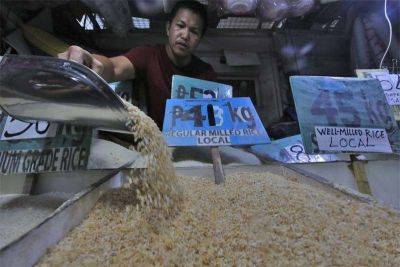PBBM admin takes decisive actions vs inflation in 2023
The Marcos, Jr. administration overcame one of its biggest challenges in 2023—elevated inflation due in part to the disrupted global markets that resulted in supply chain bottlenecks—through carefully crafted inflation mitigation measures anchored on mitigating the impact on vulnerable populations.
From a high of 8.7 percent in January 2023, inflation decelerated to 4.1 percent in November 2023, well within the Bangko Sentral ng Pilipinas (BSP)’s forecast of 4.0 to 4.8 percent for last month.
This brings the year-to-date (YTD) inflation rate to 6.2 percent, aligned with the Development Budget Coordination Committee (DBCC)’s assumption of 6.0 percent for full year 2023.
“The slower inflation for the month of November is a testament to the Marcos, Jr. administration’s whole-of-government effort to moderate rising commodity prices while protecting the most vulnerable sectors from its effects,” Finance Secretary Benjamin E. Diokno said in an earlier statement.
The national government created the Inter-agency Committee on Inflation and Market Outlook (IAC-IMO) in May under Executive Order (EO) No. 28 as a proactive measure to fight inflation.
Co-chaired by the Secretaries of the Department of Finance (DOF) and the National Economic and Development Authority (NEDA), the IAC-IMO serves as an advisory body to the Economic Development Group (EDG) on measures that will keep inflation, particularly on food and energy, within the government’s target range.
The IAC-IMO is committed to promoting the modernization of agriculture and improving its productivity to help manage inflation and ensure food security for the country, considering the looming threat of the ongoing El Niño. This is partnered by the implementation of specific measures in the El Niño Mitigation and Adaptation Plan and the expedition of government’s responses to mitigate the impact of calamities and natural disasters.
To regulate food inflation, President Ferdinand R. Marcos, Jr. issued EO 39 in September, imposing a price cap on rice. The price cap was geared at addressing non-competitive practices by some market players and complemented by measures to discourage hoarding, thereby reducing the price of rice. The







